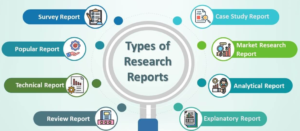The Research Clerk Agency can provide crucial support for Housing Census efforts by offering a range of services aimed at collecting, analyzing, and interpreting housing-related data.
Survey Design and Development: Research clerks can assist in designing and developing housing census surveys tailored to the specific needs and objectives of the census. This involves collaborating with census authorities, statisticians, and subject matter experts to design survey instruments that capture essential housing-related information, such as housing tenure, occupancy status, housing conditions, amenities, and household demographics.
Data Collection: Research clerks can support data collection efforts by administering housing census surveys through various methods, including face-to-face interviews, telephone surveys, online surveys, and mail-in questionnaires. They can recruit and train field enumerators, coordinate survey logistics, and ensure data quality and integrity throughout the data collection process.
Data Management and Processing: Research clerks can manage and process housing census data using specialized software and analytical tools. This includes data entry, cleaning, validation, and coding to ensure accuracy and consistency in the dataset. Research clerks can also assist in developing data management protocols and procedures to safeguard the confidentiality and security of census data.
Data Analysis and Interpretation: Research clerks can conduct data analysis to derive meaningful insights from housing census data. This includes generating descriptive statistics, conducting inferential analysis, and identifying trends and patterns in housing-related variables. Research clerks can also produce analytical reports, data visualizations, and interactive dashboards to communicate key findings to census authorities, policymakers, researchers, and the general public.
Geospatial Analysis: Research clerks with expertise in geographic information systems (GIS) can perform geospatial analysis to map and visualize housing-related data at various geographic scales, such as neighborhoods, census tracts, or administrative boundaries. This enables stakeholders to identify spatial patterns, disparities, and hotspots in housing conditions, housing affordability, and residential segregation.
Quality Assurance and Evaluation: Research clerks can conduct quality assurance checks and evaluations to assess the reliability, validity, and representativeness of housing census data. This involves conducting data audits, evaluating survey methodologies, and comparing census results with external data sources to ensure consistency and accuracy in the census findings.
Stakeholder Engagement and Dissemination: Research clerks can engage with stakeholders, including government agencies, policymakers, advocacy groups, community organizations, and the media, to disseminate housing census findings and promote data-driven decision-making. This may involve organizing stakeholder workshops, presenting findings at conferences, and publishing reports in academic journals and policy briefs.
Longitudinal Analysis: For housing censuses conducted periodically over time, research clerks can support longitudinal analysis to track changes and trends in housing-related variables over time. This enables stakeholders to assess the impact of policy interventions, economic fluctuations, demographic shifts, and other factors on housing dynamics and inform future planning and policy decisions.
The Research Clerk Agency, housing census authorities can enhance the efficiency, accuracy, and utility of housing census operations, ensuring that census data effectively inform housing policies, urban planning initiatives, infrastructure investments, and social programs.










